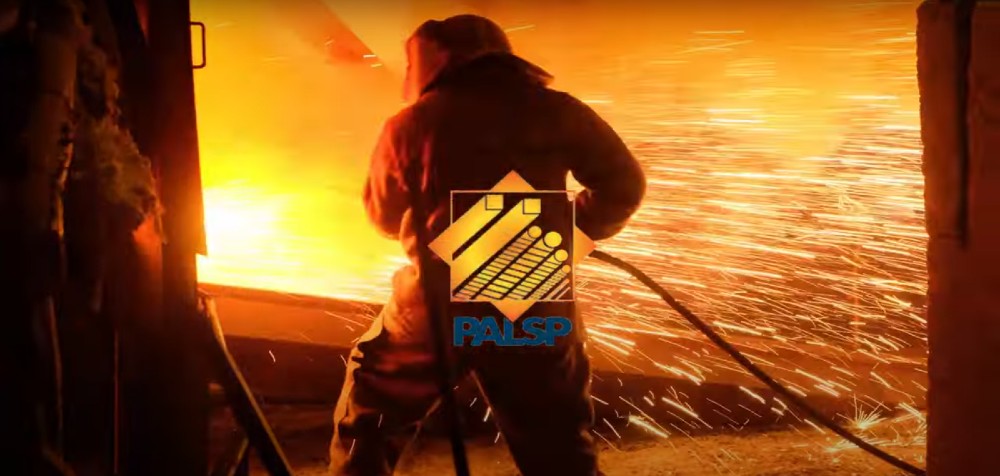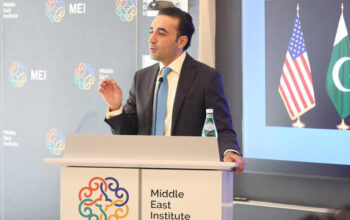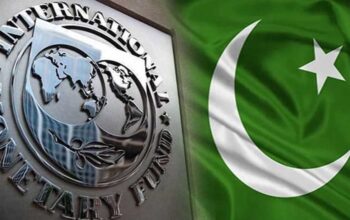Already under pressure amid tough economy, the steel industry says its very existence is threatened by the foreign exchange crisis, depriving them of crucial inputs.
By Muhammad Ali
ISLAMABAD: Teetering on the verge of collapse owing to multiple shocks to the economy, the steel industry has urged the government to allow their banks to open Letters of Credit (LCs) for raw material imports with immediate effect.
Pakistan Association of Large Steel Producers (PALSP) says the high interest rates, devalued rupee, and shortage of raw materials are putting unbearable pressures on steelmakers.
In a statement issued to the media here the other day, the steel industry’s representative body urged the government to address these issues and provide support to the struggling steel sector.
PALSM says the country is facing severe shortage of steel rebars due to the inability of the State Bank of Pakistan (SBP) to open Letters of Credit (LCs) for raw material of the industry.
It argued that the situation is being exacerbated by the recent confirmation of energy price increases and a hike in the General Sales Tax (GST) as part of the International Monetary Fund (IMF) conditions.
“The steel sector is in the midst of an unprecedented turmoil, with massive currency depreciation, shortage of raw materials, high inflation, and increased energy prices”, the statement quoted PALSP’s secretary general Wajid Bukhari as saying. “The situation is extremely difficult and unviable for steel industry to survive.”
The statement says under various heads including quarterly tariff adjustments, deferred fuel price adjustment, and imposition of a surcharge of PKR 1 per unit on large power consumers,
The government has approved a revised circular debt management plan (CDMP), which PALSP says would involve hiking the tariff by around PKR 7-8 per unit till August 2023. It says this will have a direct inflationary impact of PKR 7,000 per ton, whereas the increase of GST from 17 percent to 18 percent would further have an impact of PKR 3,000 per ton.
“Currently the prices of deformed rebars are around PKR 305,000 per ton, whereas inflationary pressures will warrant for further price increases”, says the statement. “According to Bukhari, the steel sector has been hit hard due to problems with the opening of LCs and the rapidly depleting foreign exchange reserves, which have resulted in a shortage of raw materials.”
Bokhari further says, “The manufacturers are forced to operate on very low capacities or to close their units, which has raised the cost of production and made it unviable to operate. The increase in prices of steel is also due to massive rupee devaluation and demurrage and detention charges on containers stuck at ports”.
PALSP says the devaluation of the PKR by 24 percent over the last two quarters, coupled with a 16 percent increase in inflation and from 23.8 percent to highest ever 27.6 percent and financial charges raised by 13 percent from 15 percent to 17 percent have put the industry in severe crises.
Bukhari is further quoted as saying, “The sudden depreciation of the rupee has caused losses worth billions of rupees to the industry, and stakeholders fear an unprecedented change in prices of imported finished and raw materials in case landed costs continue to rise.
“The government’s removal of the dollar cap to meet the International Monetary Fund’s demand has resulted in the Pakistani rupee falling to a historic low and the steel industry is on the brink of collapse.”
PALSP argues that the massive devaluation of the PKR against the US dollar and the increase in petroleum prices have started to cause an inflationary impact on steel prices.
“The industries are forced to increase prices due to the devaluation of the local currency, uncertain economic conditions, and high inflation”, says the industry body.
“The industry fears that this is just the beginning and that consumers will face even more shocking price hikes when the stuck imported containers stricken with heavy demurrage and detentions are released from the port.
“The shortage of raw materials is a result of problems with the non-opening of LCs due to the rapidly depleting foreign exchange reserves and a weakening rupee. The shortage has forced many steel manufacturers to operate at very low capacities of 30 percent to 40 percent, using local scrap that is of poor quality.
“The cash-strapped industry is on the brink of collapse as the cost of doing business is increasing due to the massive devaluation of the rupee.”
The statement says PALSP is calling for immediate action to address the situation, and Bukhari takes the opportunity to remind the government that the steel industry is a crucial contributor to the economy as one of the highest tax paying industries in Pakistan.
Copyright © 2021 Independent Pakistan | All rights reserved




